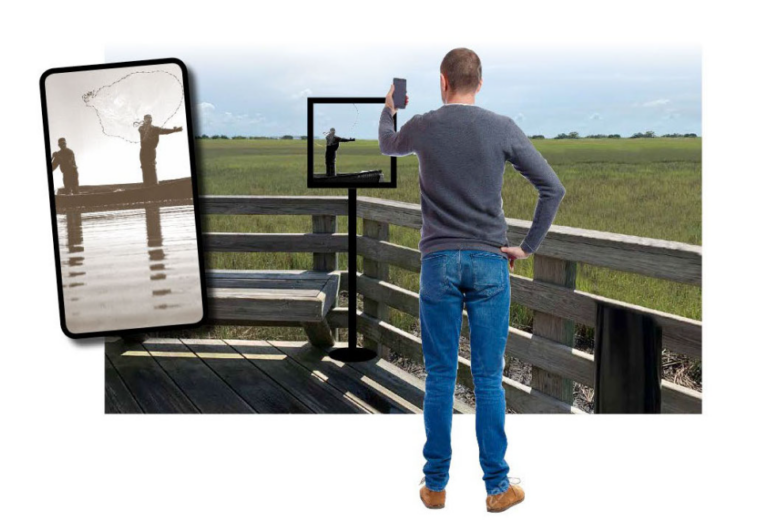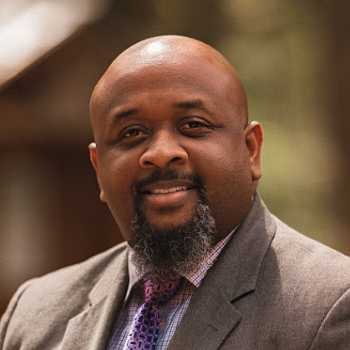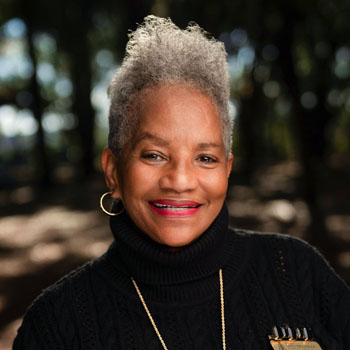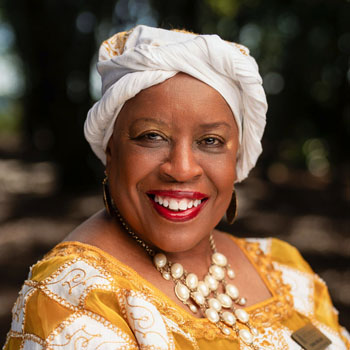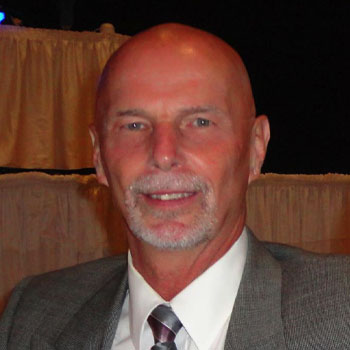About Us
Our Story
Founded in 2010 as the Mitchelville Preservation Project and renamed Historic Mitchelville Freedom Park (HMFP) in 2018, HMFP is a South Carolina nonprofit corporation committed to preserving, promoting, and honoring the historic site of Mitchelville, the first self-governing town established by formerly enslaved people in the United States. HMFP’s mission is to celebrate this pivotal chapter in American history by acknowledging the resilience, vision, and bravery of Mitchelville’s founders, ensuring their legacy endures and continues to inspire future generations.
HMFP envisions the Park as an engaging and vibrant place that celebrates the American spirit by telling the story of Mitchelville and its significance in the journey toward freedom and self-governance. Through immersive experiences and educational programs, Historic Mitchelville Freedom Park connects visitors to a rich heritage, fostering a deeper appreciation of how this story contributes to our collective national identity and shared American history.
The principles guiding HMFP’s mission underscore a commitment to authenticity, preservation, and accessibility. HMFP seeks to present an accurate account of Mitchelville’s history, honoring the cultural and historical contributions of Native Islanders and the importance of this legacy to Hilton Head and beyond. HMFP operates as a public historic site, ensuring meaningful access for all visitors, including those with disabilities, and follows best practices in archaeology and preservation standards. Moreover, the organization prioritizes sustainable development, balancing environmental, economic, and cultural considerations to maintain the site’s integrity and usefulness for public enjoyment.
Over the years, HMFP has celebrated many key achievements, steadily building support and partnerships to further its mission. The site’s historical value was first formally recognized in 1988 when it was added to the National Register of Historic Places. Subsequent milestones include the creation of a comprehensive master plan, collaborations with national historical organizations, and the introduction of popular events like the annual Juneteenth Celebration. The Park has also secured critical funding and support from local and state governments, reinforcing HMFP’s mission to preserve this historically significant site and deepen public understanding of Mitchelville’s impact on American history.
Historic Mitchelville Freedom Park Leadership
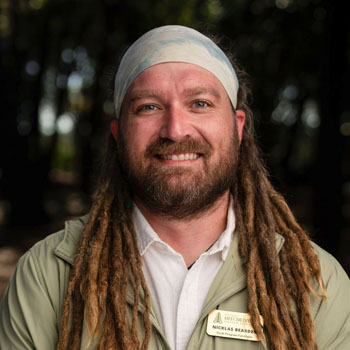
Nick Bearden
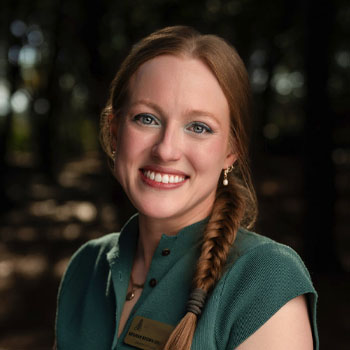
Meghan Brown Gregory
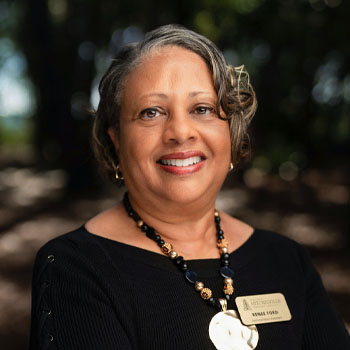
Renee Ford
to the and Executive Director

Courtney Young
and Media Manager
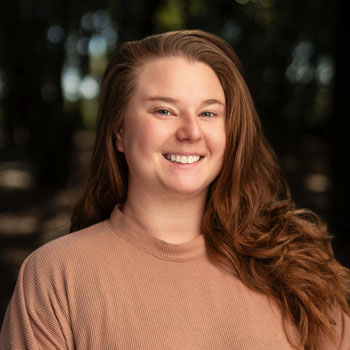
Dr. Katherine Seeber
Executive Committee
Omolola Campbell
William Patterson
Erin Erenberg
Napoleon Nelson
Board of Directors
Afrika Latrice Campbell
Sonya Grant
Clinton Hallman
Hester Hodde
Michael Marks
Cathy McClellan
Shirley Peterson
Dr. Sharon Sanders-Funnye
Michael Tighe
Stuart Bell
Eric Washington
Chairman Emeritus
Thomas C. Barnwell, Jr.
Our Future Plans for Mitchelville: Park Master Plan
Creating a commemorative Park on a site where no visible elements of the town remain is a challenging and rewarding undertaking. Once complete, Historic Mitchelville Freedom Park will become a unique and substantial visitor attraction, having the power to bring high-value culture and heritage tourists to the Island, to stimulate the economy of the north end, and to generate national recognition for Native Islanders and the Gullah Geechee culture. Mitchelville will complement, rather than compete directly with, other existing history, art and culture attractions, fill a void in the telling of local, regional, and national history, and make the telling of that story relevant to the present. The graphic presented below provides a comprehensive view of our plans for the Park, including an 18,000 square foot Visitors Center, an Event Lawn, and eight to ten reconstructed houses that represent the orientation and clustering of homes at Mitchelville during the historic period. Our vision is to create an imaginative and exciting place that celebrates the American spirit through the telling of the story of the first freedman’s town in America, and that informs and strengthens the fabric of our shared American heritage.
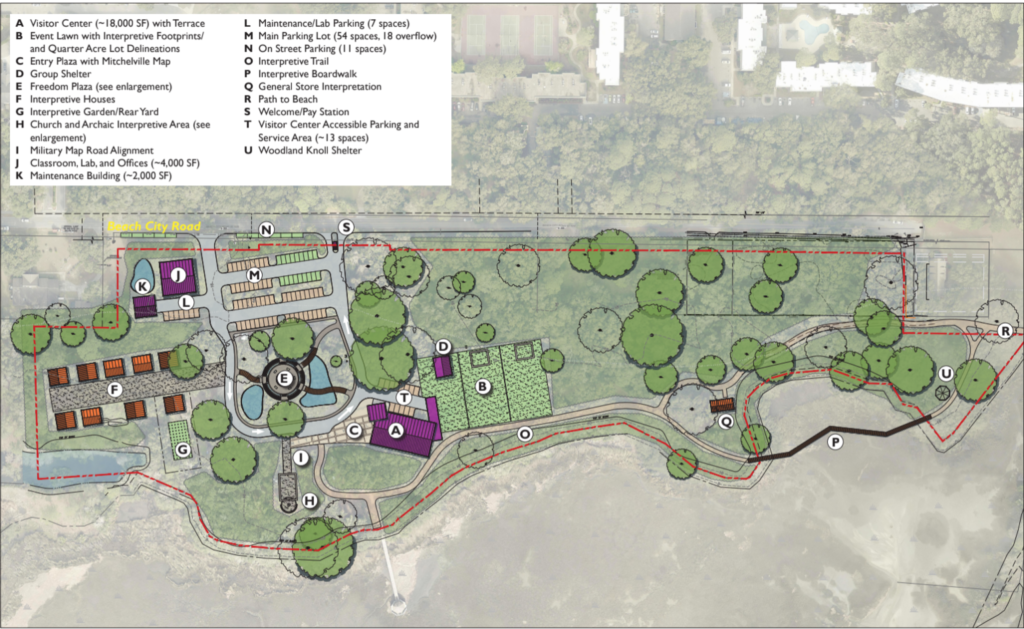
Overview of the Park Master Plan
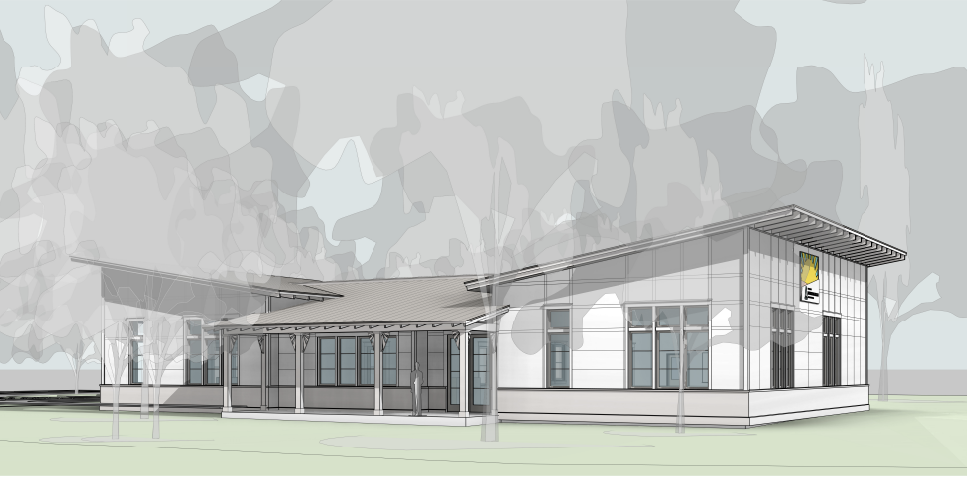
Future Archaeological Research Facility
